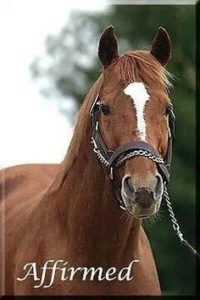 The Coston Flare, the first technically and commercially viable maritime flare, was a universal attention-getting sign at sea for many years. Similarly, the “Rule of Orderliness Opinion” attracts en banc review in the Fifth Circuit; the most recent example being a January 17 panel dissent about circuit precedent on the viability of a patient’s implied right of action under the Medicaid Act, which led to a February 5 vote to take the issue en banc. In that spirit, yesterday’s 3-opinion panel resolution of Wittmer v. Phillips 66 Co.raises the question whether circuit precedent addresses Title VII’s applicability to discrimination based on sexual orientation. No. 18-20251 (Feb. 6, 2019).
The Coston Flare, the first technically and commercially viable maritime flare, was a universal attention-getting sign at sea for many years. Similarly, the “Rule of Orderliness Opinion” attracts en banc review in the Fifth Circuit; the most recent example being a January 17 panel dissent about circuit precedent on the viability of a patient’s implied right of action under the Medicaid Act, which led to a February 5 vote to take the issue en banc. In that spirit, yesterday’s 3-opinion panel resolution of Wittmer v. Phillips 66 Co.raises the question whether circuit precedent addresses Title VII’s applicability to discrimination based on sexual orientation. No. 18-20251 (Feb. 6, 2019).
 The Pugas received a substantial judgment in their favor after a jury trial, arising from a collision with a truck controlled by RXC Solutions. The Fifth Circuit substantially affirmed, holding, inter alia:
The Pugas received a substantial judgment in their favor after a jury trial, arising from a collision with a truck controlled by RXC Solutions. The Fifth Circuit substantially affirmed, holding, inter alia:
- Preservation. The defendant’s FRCP 50(b) motion, based on the argument that federal law does not allow courts to hold motor carriers liable for the acts of independent contractors, was not permissible when its 50(a) motion only attacked the sufficiency of the evidence about the driver’s employee status and alleged negligence;
- Jury charge. The district court did not abuse its discretion when it “closely examined the statute, avoided the obvious, overbroad definition of motor carrier, and picked out the correct, limited definition.”
- Expert testimony. The defendant’s objections to the testimony of an accident investigator went to weight rather than admissibility, even though “[i]t did not take into account every possible explanation for the accident, and some measurements were missing.”
- Remittitur. “We measure disproportionality by applying a percentage enhancement to past similar awards. This enhancement is 50% for jury trials.”
Puga v. RCX Solutions, Inc., No. 17-41282 (Feb. 1, 2019).
 St. Bernard Parish v. Lafarge North America, the long-running litigation about damages related to Hurricane Katrina and a large Lafarge barge, led to an appeal by Seymour – a former attorney for some of the claimaints, whose attempt to intervene in the case and collect his fee was rejected. The Fifth Circuit affirmed, noting, inter alia, that he was not entitled to rely upon representation of his interests by other parties after his 2011 withdrawal, and that he appeared capable of pursuing relief in other fora. No. 18-30029 (Feb. 1, 2019).
St. Bernard Parish v. Lafarge North America, the long-running litigation about damages related to Hurricane Katrina and a large Lafarge barge, led to an appeal by Seymour – a former attorney for some of the claimaints, whose attempt to intervene in the case and collect his fee was rejected. The Fifth Circuit affirmed, noting, inter alia, that he was not entitled to rely upon representation of his interests by other parties after his 2011 withdrawal, and that he appeared capable of pursuing relief in other fora. No. 18-30029 (Feb. 1, 2019).
 The removal statute does not allow an in-state defendant to remove a case, even if diversity exists. That rule imposes a substantial limitation on removable cases. But if such a removal survives to final judgment, the judgment will stand: ” The removal bar of 28 U.S.C. § 1441(b), however, is procedural and not jurisdictional. Therefore, ‘where there is improper removal, the pertinent question is whether the removed action could have been filed originally in federal court; and, if it could have been and the action has proceeded to judgment on the merits in federal court, that judgment will not be disturbed.'” There is complete diversity, so the case could have been brought originally in federal district court. Furthermore, Lamb did not object to removal in the district court, and the case has proceeded to a judgment on the merits. Lamb v. Ashford Place Apartments LLC, No. 18-30469 (Jan. 30, 2019) (citations omitted, emphasis in original).
The removal statute does not allow an in-state defendant to remove a case, even if diversity exists. That rule imposes a substantial limitation on removable cases. But if such a removal survives to final judgment, the judgment will stand: ” The removal bar of 28 U.S.C. § 1441(b), however, is procedural and not jurisdictional. Therefore, ‘where there is improper removal, the pertinent question is whether the removed action could have been filed originally in federal court; and, if it could have been and the action has proceeded to judgment on the merits in federal court, that judgment will not be disturbed.'” There is complete diversity, so the case could have been brought originally in federal district court. Furthermore, Lamb did not object to removal in the district court, and the case has proceeded to a judgment on the merits. Lamb v. Ashford Place Apartments LLC, No. 18-30469 (Jan. 30, 2019) (citations omitted, emphasis in original).
In Springboards to Education v. Houston ISD, an education-services company sued the Houston school district about a summer reading program. The company’s program, called the “Read a Million Words Campaign,” offered incentives to join the “Millionaire’s Reading Club” and gave prizes when students reached their reading goals. HISD’s program, focused just on summer reading, involved the “Houston ISD Millionaire Club” and similar sorts of goal-related gifts. In affirming a summary judgment for HISD, the Fifth Circuit made two important, general observations about the purposes of t rademark law:
rademark law:
- Trademark law protects marks – not process. “HISD could have copied the methodologies used in the Read a Million Words campaign step by step, and, whatever other problems that might have engendered, as long as it used clearly distinguishable nomenclature, Springboards would have no argument that HISD violated the Lanham Act in doing so.” The Court noted that a patent could, at least in theory, potentially protect such processes.
- Purchaser confusion is the key – not “confusion” generally. The Court noted that confusion about the programs involving HISD students and their parents was relevant – but only to the extent it bore on the test for evaluating confusion by potential purchasers of Springboards’ products. “Looking the digits of confusion
 for guidance, we conclude that no reasonable jury could find a likelihood of confusion. Springboards’ marks are not widely known and are similar or identical to multiple third-party marks. HISD did not market the Houston ISD Millionaire Club to Springboards’ potential customers—i.e., third-party school districts. There is no evidence of an intent to confuse. And Springboards’ potential customers are sophisticated institutional purchasers that are not easily confused. The only digit pointing unwaveringly in Springboards’ favor is the similarity of the products. But even this does not strongly suggest a likelihood of confusion given the popularity of millionaire-themed literacy programs.” (emphasis added).
for guidance, we conclude that no reasonable jury could find a likelihood of confusion. Springboards’ marks are not widely known and are similar or identical to multiple third-party marks. HISD did not market the Houston ISD Millionaire Club to Springboards’ potential customers—i.e., third-party school districts. There is no evidence of an intent to confuse. And Springboards’ potential customers are sophisticated institutional purchasers that are not easily confused. The only digit pointing unwaveringly in Springboards’ favor is the similarity of the products. But even this does not strongly suggest a likelihood of confusion given the popularity of millionaire-themed literacy programs.” (emphasis added).
No. 18-20119 (revised Feb. 14, 2019).
 Moss and Keating sued Princip, Martin, and the partnership to which the four of them belonged. The defendants removed the case, but after an adverse verdict, raised a problem with subject matter jurisdiction: Moss and Keating were diverse from Princip and Martin – but the partnership, as a citizen of every place the partners lived, was not. The district court dismissed the partnership from the case, finding it necessary but dispensable, and the Fifth Circuit affirmed:
Moss and Keating sued Princip, Martin, and the partnership to which the four of them belonged. The defendants removed the case, but after an adverse verdict, raised a problem with subject matter jurisdiction: Moss and Keating were diverse from Princip and Martin – but the partnership, as a citizen of every place the partners lived, was not. The district court dismissed the partnership from the case, finding it necessary but dispensable, and the Fifth Circuit affirmed:
“Although the plaintiffs raised claims for damages derivative of the partnership’s rights, the partnership’s presence in the suit was not necessary to protect the partnership or any of the parties from prejudice. The partnership was a party throughout the litigation, but its role was purely passive, reflecting the reality that its interests did not diverge from the interests represented by the four individual partners and that its presence played no distinct role in the outcome of the suit against the individuals.”
Moss v. Princip, No. 16-10605 (Jan. 16, 2019).
 84 Lumber lost, at the pretrial stage, a construction dispute with Paschen, a general contractor. Paschen then dismissed without prejudice its third-party action against J.A., a general contractor, after which 84 Lumber appealed. The jurisdictional question was whether that dismissal without prejudice made the case unappealable under Ryan v. Occidental Petroleum 577 F.2d 298 (5th Cir. 1978). The Fifth Circuit concluded that it did not: “The purpose of the Ryan rule is to prevent the appealing party from manufacturing jurisdiction by using an ‘end-run around the final judgment rule to convert an otherwise non-final—and thus nonappealable—ruling into a final decision appealable under § 1291.’ But the plaintiff, 84 Lumber, did not participate in Paschen’s dismissal of its remaining third-party claim against J & A, so it did not manufacture appellate jurisdiction.” 84 Lumber Co. v. Continental Casualty Co., No. 18-30170 (Jan. 24, 2019).
84 Lumber lost, at the pretrial stage, a construction dispute with Paschen, a general contractor. Paschen then dismissed without prejudice its third-party action against J.A., a general contractor, after which 84 Lumber appealed. The jurisdictional question was whether that dismissal without prejudice made the case unappealable under Ryan v. Occidental Petroleum 577 F.2d 298 (5th Cir. 1978). The Fifth Circuit concluded that it did not: “The purpose of the Ryan rule is to prevent the appealing party from manufacturing jurisdiction by using an ‘end-run around the final judgment rule to convert an otherwise non-final—and thus nonappealable—ruling into a final decision appealable under § 1291.’ But the plaintiff, 84 Lumber, did not participate in Paschen’s dismissal of its remaining third-party claim against J & A, so it did not manufacture appellate jurisdiction.” 84 Lumber Co. v. Continental Casualty Co., No. 18-30170 (Jan. 24, 2019).
 A reminder on a basic point of judgment finality for appeal purposes: “FRAP 4(a)(1)(1)(A) requires litigants to file a notice of appeal ‘within 30 days after entry of the judgment or order appealed from.’ The district court entered judgment on March 6, 2018. Kleinman moved for attorney’s fees on March 20, which the court awarded on June 26. Kleinman appealed both the judgment and the fees award on July 23—over four months late for the judgment on the merits. And contrary to Kleinman’s arguments, ‘[m]otions addressing costs and attorney’s fees . . . are considered collateral to the judgment, and do not toll the time period for filing an appeal.’” Kleinman v. City of Austin, No. 18-50612 (Jan. 25, 2019, unpubl.)
A reminder on a basic point of judgment finality for appeal purposes: “FRAP 4(a)(1)(1)(A) requires litigants to file a notice of appeal ‘within 30 days after entry of the judgment or order appealed from.’ The district court entered judgment on March 6, 2018. Kleinman moved for attorney’s fees on March 20, which the court awarded on June 26. Kleinman appealed both the judgment and the fees award on July 23—over four months late for the judgment on the merits. And contrary to Kleinman’s arguments, ‘[m]otions addressing costs and attorney’s fees . . . are considered collateral to the judgment, and do not toll the time period for filing an appeal.’” Kleinman v. City of Austin, No. 18-50612 (Jan. 25, 2019, unpubl.)
June Medical Services v. Gee, a 2-1 decision allowing various restrictions and regulations placed on abortion procedures by Louisiana (Judge Smith, writing for the majority, joined by Judge Clement, with Judge Higginbotham dissenting), recently went to an en banc vote that fell largely along the lines of the judges’ political party of nomination – 6 judges voted in favor of rehearing (Chief Judge Stewart and Judges Dennis, Southwick, Graves, Higginson, and Costa), and 9 judges voted against rehearing (Judges Jones, Smith, Owen, Elrod, Haynes, Willett, Ho, Engelhardt, and Oldham).
 The fractured panel in Collins v. Mnuchin, which addressed the legality of “sweeps” of funds from Fannie Mae and Freddie Mac by their regulator, led to a fascinating en banc argument today in New Orleans as the Court reviewed fundamental administrative-law issues.
The fractured panel in Collins v. Mnuchin, which addressed the legality of “sweeps” of funds from Fannie Mae and Freddie Mac by their regulator, led to a fascinating en banc argument today in New Orleans as the Court reviewed fundamental administrative-law issues.
 The novel situation of a bankruptcy debtor, who emerged from bankruptcy proceedings solvent thanks to a luckily-timed rise in crude oil prices, gave rise to a fundamental if infrequently-encountered question: “whether the . . . creditors are ‘impaired’ by a plan that paid them everything allowed by the Bankruptcy Code.” The bankruptcy court said that they were, reasoning that a plan impairs a creditor if it refuses to pay an amount the Bankruptcy Code independently disallows; accordingly, it required a “make-whole” payment to certain creditors and set postpetition interest at a contractual rate. The Fifth Circuit saw a “monolithic mountain” of contrary authority, and reversed and remanded, holding that “the Code—not the reorganization plan—defines and limits the claim in these circumstances.” Ultra Petroleum Corp. v. Ad Hoc Committee, No. 17-20793 (Jan. 17, 2019), revised/shortened on rehearing, Nov 26, 2019.
The novel situation of a bankruptcy debtor, who emerged from bankruptcy proceedings solvent thanks to a luckily-timed rise in crude oil prices, gave rise to a fundamental if infrequently-encountered question: “whether the . . . creditors are ‘impaired’ by a plan that paid them everything allowed by the Bankruptcy Code.” The bankruptcy court said that they were, reasoning that a plan impairs a creditor if it refuses to pay an amount the Bankruptcy Code independently disallows; accordingly, it required a “make-whole” payment to certain creditors and set postpetition interest at a contractual rate. The Fifth Circuit saw a “monolithic mountain” of contrary authority, and reversed and remanded, holding that “the Code—not the reorganization plan—defines and limits the claim in these circumstances.” Ultra Petroleum Corp. v. Ad Hoc Committee, No. 17-20793 (Jan. 17, 2019), revised/shortened on rehearing, Nov 26, 2019.
 The official investiture of the eight new Justices on the Fifth Court of Appeals will be at 3:30 on January 30, 2019, at the Belo Mansion in downtown Dallas.
The official investiture of the eight new Justices on the Fifth Court of Appeals will be at 3:30 on January 30, 2019, at the Belo Mansion in downtown Dallas.
After the November 2018 elections, the new leadership of Harris County moved to dismiss the appeal of long-running litigation about the county’s pretrial bail policy (most recently, the stay pending appeal granted in O’Donnell v. Goodhart, 900 F.3d 220 (5th Cir. 2018)). That panel rejected the movants’ request to vacate its opinion, noting the exceptional effort made to handle the case quickly and accurately, and finding that that situation was not analogous to an appeal that becomes moot. The panel agreed that “a merits panel is not bound by a motions panel,” but observed: “[T]hat is irrelevant because there is not, and never will be, a merits panel” as a result of the dismissal. O’Donnell v. Salgado, No. 18-20466 (Jan. 14, 2019).
 In a counterpoint to last month’s decision in SEC v. Sethi, the Fifth Circuit reversed a summary judgment about whether oil-and-gas investment contracts qualified as “securities” for purposes of 10(b)(5) and 15(a) liability: “Fifteen investors also submitted affidavits declaring that they had the power to, and did in fact, vote on a variety of decisions. And the record does not show that Arcturus or Aschere took any significant actions without the investors’ prior approval. The fact that the investors voted and took actions to manage the drilling projects makes this case different than others where the district court appropriately granted summary judgment.” SEC v. Arcturus Corp., No. 17-10503 (Jan. 7, 2019).
In a counterpoint to last month’s decision in SEC v. Sethi, the Fifth Circuit reversed a summary judgment about whether oil-and-gas investment contracts qualified as “securities” for purposes of 10(b)(5) and 15(a) liability: “Fifteen investors also submitted affidavits declaring that they had the power to, and did in fact, vote on a variety of decisions. And the record does not show that Arcturus or Aschere took any significant actions without the investors’ prior approval. The fact that the investors voted and took actions to manage the drilling projects makes this case different than others where the district court appropriately granted summary judgment.” SEC v. Arcturus Corp., No. 17-10503 (Jan. 7, 2019).
 Thompson v. Dallas City Attorney’s Office appears to present the first use, in the history of the federal judiciary, of both the words “augurs” and “morphed” in a circuit-court opinion. It also carefully reviews the “vexing” question of when an earlier Fifth Circuit opinion should not be followed, despite the “rule of orderliness,” because that opinion was inconsistent with Supreme Court precedent when written. The Court found that Henson v. Columbus Bank & Trust Co., 651 F.2d 320 (5th Cir. 1981) was such a case, noting:
Thompson v. Dallas City Attorney’s Office appears to present the first use, in the history of the federal judiciary, of both the words “augurs” and “morphed” in a circuit-court opinion. It also carefully reviews the “vexing” question of when an earlier Fifth Circuit opinion should not be followed, despite the “rule of orderliness,” because that opinion was inconsistent with Supreme Court precedent when written. The Court found that Henson v. Columbus Bank & Trust Co., 651 F.2d 320 (5th Cir. 1981) was such a case, noting:
- prior Supreme Court precedent on the relevant res judicata question, which Henson did not address or even acknowledge;
- further Supreme Court precedent, issued soon after Henson, reaffirming the earlier opinion;
- consistent Fifth Circuit case law since Henson that did not apply it; and
- a paucity of citations to Henson.
In sum: “Orderliness, rightly understood, compels deference, not defiance. And disregarding on-point precedent in favor of an aberrational decision flouting that precedent is the antithesis of orderlinesss.” No. 17-10952 (Jan. 11, 2019).
 Swearingen sued her former employer, Gillar Home Health Care, for not accommodating her pregnancy-related disability. At trial, “liability turned on whether Swearingen sent Evelyn Zapalac, the supervisor who fired her, a doctor’s note to corroborate a medical-related absence or if Swearingen instead simply failed to report for work.” The trial court allowed the defense to read Zapalac’s deposition testimony rather than calling her live. The Fifth Circuit reversed and remanded. Swearingen v. Gillar Home Health Care LP, No. 17-20600 (Jan. 11, 2019) (unpublished).
Swearingen sued her former employer, Gillar Home Health Care, for not accommodating her pregnancy-related disability. At trial, “liability turned on whether Swearingen sent Evelyn Zapalac, the supervisor who fired her, a doctor’s note to corroborate a medical-related absence or if Swearingen instead simply failed to report for work.” The trial court allowed the defense to read Zapalac’s deposition testimony rather than calling her live. The Fifth Circuit reversed and remanded. Swearingen v. Gillar Home Health Care LP, No. 17-20600 (Jan. 11, 2019) (unpublished).
While Zapalac lived 95.5 miles from the courthouse – 4.5 miles short of the 100-mile radius that makes a witness “unavailable” under Fed. R. Civ. P. 32 – the Court observed: “The Rule does not use a modifier such as ‘about’ or ‘approximately’ or ‘around.'” The Court further noted that this rule’s requirements have been “summarized . . . as prohibiting deposition testimony unless ”live testimony from the deponent is impossible or highly impracticable.'” And this error was harmful because “the only person who testified to knowing Zapalac did not receive the doctor’s note was Zapalac herself,” making “the harm . . . especially acute because liability inged on competing credibility determinations.” Note that a different result would obtain in state court under Tex. R. Evid. 801(e)(1) which defines as a non-hearsay statement: “A Deponent’s Statement. In a civil case, the statement was made in a deposition taken in the same proceeding. ‘Same proceeding’ is defined in Rule of Civil Procedure 203.6(b). The deponent’s unavailability as a witness is not a requirement for admissibility.”
Wease established ambiguity in two as pects of a deed of trust. With respect to when a servicer could pay the borrower’s property taxes by the servicer, the key provision used the fact-specific phrase “reasonable or appropriate”; other provisions both suggested that the power was limited to back taxes, but also that it could be made “at any time.” Accordingly, “Wease was entitled to proceed to trial on his claim that Ocwen breached the contract by paying his 2010 taxes before the tax lien attached and before they became delinquent.” This analysis led to finding a triable fact issue as to whether Ocwen provided adequate notice of its actions. Wease v. Ocwen Loan Servicing, No. 17-01574 (Jan. 4, 2019). A revised opinion eliminated some statements about tax liens and when they took effect.
pects of a deed of trust. With respect to when a servicer could pay the borrower’s property taxes by the servicer, the key provision used the fact-specific phrase “reasonable or appropriate”; other provisions both suggested that the power was limited to back taxes, but also that it could be made “at any time.” Accordingly, “Wease was entitled to proceed to trial on his claim that Ocwen breached the contract by paying his 2010 taxes before the tax lien attached and before they became delinquent.” This analysis led to finding a triable fact issue as to whether Ocwen provided adequate notice of its actions. Wease v. Ocwen Loan Servicing, No. 17-01574 (Jan. 4, 2019). A revised opinion eliminated some statements about tax liens and when they took effect.
In Janvey v. GMAG, LLC, the Fifth Circuit retur ned to the “good faith” defense to a claim under the Texas Uniform Fraudulent Transfer Act – a defense that potentially allows an innocent third-party to retain the benefit of a transfer made by a debtor with intent to defraud creditors. The specific question was whether the Texas Supreme Court would accept a “futility” defense to inquiry notice, and the Court concluded that it would not: “No prior court considering TUFTA good faith has applied a futility exception to this exception, and we decline to hold that the Supreme Court of Texas would do so. Transferees seeking to retain fraudulent transfers might offer up evidence of undertaken investigations to prove a reasonable person’s suspicions would not have been aroused when the transfer was received. But the fact that a fraud or scheme is later determined to be too complex for discovery does not excuse a finding of inquiry notice and does not warrant the application of TUFTA good faith.” No. 17-11526 (Jan. 9, 2019).
ned to the “good faith” defense to a claim under the Texas Uniform Fraudulent Transfer Act – a defense that potentially allows an innocent third-party to retain the benefit of a transfer made by a debtor with intent to defraud creditors. The specific question was whether the Texas Supreme Court would accept a “futility” defense to inquiry notice, and the Court concluded that it would not: “No prior court considering TUFTA good faith has applied a futility exception to this exception, and we decline to hold that the Supreme Court of Texas would do so. Transferees seeking to retain fraudulent transfers might offer up evidence of undertaken investigations to prove a reasonable person’s suspicions would not have been aroused when the transfer was received. But the fact that a fraud or scheme is later determined to be too complex for discovery does not excuse a finding of inquiry notice and does not warrant the application of TUFTA good faith.” No. 17-11526 (Jan. 9, 2019).
 In Conestoga Trust v. Columbus Life Ins. Co., the Fifth Circuit found that the trial court’s charge erroneously placed the burden of proof on the insured – rather than the insurer – as to an issue about delivery of a grace notice before termination of the policy. The next question was whether this error was sufficiently harmful to require reversal; the insured “claims that the district court’s improper placement of the burden constituted prejudicial error because, given the lack of direct evidence, the burden of proof was likely outcome-determinative,” while the insurer “concludes that any error concerning the burden of proof is harmless because the record demonstrates that Columbus presented ample evidence that it mailed the Grace Notice.” Acknowledging that a burden-of-proof error does not automatically require reversal, the Court concluded:
In Conestoga Trust v. Columbus Life Ins. Co., the Fifth Circuit found that the trial court’s charge erroneously placed the burden of proof on the insured – rather than the insurer – as to an issue about delivery of a grace notice before termination of the policy. The next question was whether this error was sufficiently harmful to require reversal; the insured “claims that the district court’s improper placement of the burden constituted prejudicial error because, given the lack of direct evidence, the burden of proof was likely outcome-determinative,” while the insurer “concludes that any error concerning the burden of proof is harmless because the record demonstrates that Columbus presented ample evidence that it mailed the Grace Notice.” Acknowledging that a burden-of-proof error does not automatically require reversal, the Court concluded:
“While the misallocation of the burden of proof did not produce an ‘irrational verdict’ here, the evidence—though largely in favor of Columbus—is not so one-sided that Conestoga failed to present a genuine issue of material fact. Given that the jury was incorrectly instructed on the law on the sole issue before it, we are left with ‘a substantial doubt whether the jury was fairly guided in its deliberations.'”
No. 17-50073 (Jan. 3, 2019, unpublished).
 Justice Kavanaugh’s first signed Supreme Court opinion was a 9-0 reversal of the Fifth Circuit in Schein v. Archer & White, 17-1272 (Jan. 8, 2019). The Fifth Circuit opinion found that the district court, rather than the arbitrator, could make a decision about arbitrability when the request for arbitration was “wholly groundless”; the Supreme Court rejected that line of authority and held that this language vested the arbitrator with sole authority over such disputes:
Justice Kavanaugh’s first signed Supreme Court opinion was a 9-0 reversal of the Fifth Circuit in Schein v. Archer & White, 17-1272 (Jan. 8, 2019). The Fifth Circuit opinion found that the district court, rather than the arbitrator, could make a decision about arbitrability when the request for arbitration was “wholly groundless”; the Supreme Court rejected that line of authority and held that this language vested the arbitrator with sole authority over such disputes:
“Disputes. This Agreement shall be governed by the laws of the State of North Carolina. Any dispute arising under or related to this Agreement (except for actions seeking injunctive relief and disputes related to trademarks, trade secrets, or other intellectual property of [Schein]), shall be resolved by binding ar- bitration in accordance with the arbitration rules of the American Arbitration Association [(AAA)]. The place of arbitration shall be in Charlotte, North Carolina.”
 The Mississippi state flag incorporates the Confederacy’s “Stars and Bars”; in Mississippi Rising Coalition v. City of Ocean Springs, plaintiffs challenged a local ordinance requiring that the flag be flown over city hall and other municipal buildings. In particular, they alleged that the law “amounts to ‘racial steering’ under the [Fair Housing Act] because it deters African-Americans from living in or moving to Ocean Springs.” Citing recent authority that rejected the plaintiffs’ standing to bring an equal protection challenge to a similar law, the Fifth Circuit found that these plaintiffs also lacked both constitutional and statutory standing: “Even assuming arguendo that displaying a state flag could be considered ‘making’ or ‘publishing’ a ‘notice, statement, or advertisement,’ that alone does not plausibly suggest that the City has done
The Mississippi state flag incorporates the Confederacy’s “Stars and Bars”; in Mississippi Rising Coalition v. City of Ocean Springs, plaintiffs challenged a local ordinance requiring that the flag be flown over city hall and other municipal buildings. In particular, they alleged that the law “amounts to ‘racial steering’ under the [Fair Housing Act] because it deters African-Americans from living in or moving to Ocean Springs.” Citing recent authority that rejected the plaintiffs’ standing to bring an equal protection challenge to a similar law, the Fifth Circuit found that these plaintiffs also lacked both constitutional and statutory standing: “Even assuming arguendo that displaying a state flag could be considered ‘making’ or ‘publishing’ a ‘notice, statement, or advertisement,’ that alone does not plausibly suggest that the City has done
anything ‘with respect to the sale or rental of a dwelling.'” No. 18-60473 (Dec. 3, 2018).
 I was on a CLE panel at the Belo today about the Texas anti-SLAPP statute with my partner Josh Sandler and Hon. Gena Slaughter of Dallas’s 191st District Court; here is a copy of our PowerPoint presentation.
I was on a CLE panel at the Belo today about the Texas anti-SLAPP statute with my partner Josh Sandler and Hon. Gena Slaughter of Dallas’s 191st District Court; here is a copy of our PowerPoint presentation.
 Gurule, a waitress, sued her employer for violations of federal labor law about its handling of overtime and tips. After rejecting a Rule 68 settlement offer of $3,133.34, she went to trial and won $1,131.39. The district court awarded her that amount, as well as $25,089.30 in attorneys’ fees – a significant reduction from the $129,565 requested by her counsel – minus a cost award of $1,517.57, given her rejection of the Rule 68 offer. The Fifth Circuit affirmed, finding that the rejection of the Rule 68 offer should be considered as a relevant factor in determining an appropriate fee award, but not a dispositive one. Gurule v. Land Guardian, Inc., No. 17-20710 (Dec. 27, 2018).
Gurule, a waitress, sued her employer for violations of federal labor law about its handling of overtime and tips. After rejecting a Rule 68 settlement offer of $3,133.34, she went to trial and won $1,131.39. The district court awarded her that amount, as well as $25,089.30 in attorneys’ fees – a significant reduction from the $129,565 requested by her counsel – minus a cost award of $1,517.57, given her rejection of the Rule 68 offer. The Fifth Circuit affirmed, finding that the rejection of the Rule 68 offer should be considered as a relevant factor in determining an appropriate fee award, but not a dispositive one. Gurule v. Land Guardian, Inc., No. 17-20710 (Dec. 27, 2018).
 In a residential foreclosure case, the borrower alleged that the bank/lender was vicariously liable for alleged RESPA violations by the servicer. Noting that it was the first federal circuit court to address the point, the Fifth Circuit found that the lender could not be held vicariously liable. The regulation at issue imposed duties only on
In a residential foreclosure case, the borrower alleged that the bank/lender was vicariously liable for alleged RESPA violations by the servicer. Noting that it was the first federal circuit court to address the point, the Fifth Circuit found that the lender could not be held vicariously liable. The regulation at issue imposed duties only on
servicers. (12 C.F.R. § 1024.41(c)(1) (“[A] servicer shall . . .”)) And when Congress wanted to expand liability, it used language showing its intent to do so. (12 U.S.C. § 2607 (saying that “no person” will pay kickbacks or unearned fees)). Christiana Trust v. Riddle, No. 17-11429 (Dec. 21, 2018).
 Together with LPCH colleagues John Adams and Paulette Miniter, I’ve written three articles about the effect of the 2018 judicial elections in three areas:
Together with LPCH colleagues John Adams and Paulette Miniter, I’ve written three articles about the effect of the 2018 judicial elections in three areas:
- Removal. “Removal to Federal Court After the November 2018 Elections:
More Incentive, But Less Receptiveness?” - Standards of Review. The Return of Factual Sufficiency Review?
- Roles of judge and jury. Three Sentences to Study: Potential New Court of Appeals Perspectives
 Ironshore, an excess insurance carrier, alleged that the Schiff Hardin law firm made negligent misrepresentations to it while reporting on litigation involving Dorel – the firm’s client and Ironshore’s insured. The Fifth Circuit made “an Erie guess that the Supreme Court of Texas would apply the attorney immunity doctrine to shield attorneys for such negligent misrepresentation claims.” It then concluded:
Ironshore, an excess insurance carrier, alleged that the Schiff Hardin law firm made negligent misrepresentations to it while reporting on litigation involving Dorel – the firm’s client and Ironshore’s insured. The Fifth Circuit made “an Erie guess that the Supreme Court of Texas would apply the attorney immunity doctrine to shield attorneys for such negligent misrepresentation claims.” It then concluded:
“The factual allegations of the complaint in this case reflect that all of the alleged misrepresentations and omissions were related to Schiff Hardin’s representation of Dorel in the Hinson litigation. Looking beyond Ironshore’s characterization of the firm’s conduct as wrongful, as we must, the type of conduct at issue in this case includes: (1) reporting on the status of litigation and settlement discussions; (2) providing opinions as to the strength and valuation of plaintiffs’ claims; (3) providing opinions as to the perceived litigation strategies employed by opposing counsel and the potential prejudice of pre-trial developments; (4) providing estimates of potential liability; (5) reporting on the progress of a jury trial; and (6) reporting on pre-trial rulings and pre-trial settlement offers. We are satisfied that the kinds of conduct at issue in
this case fall within the routine conduct attorneys engage in when handling this type of litigation. Schiff Hardin’s conduct falls squarely within the scope of the firm’s representation of its client.”
Ironshore Europe DAC v. Schiff Hardin LLP, No. 18-40101 (Jan. 2, 2019).
 A textbook example of the “rule of orderliness” appears in Gahagan v. U.S. Dep’t of Justice, a dispute about the recovery of attorneys’ fees under FOIA by an attorney proceeding pro se:
A textbook example of the “rule of orderliness” appears in Gahagan v. U.S. Dep’t of Justice, a dispute about the recovery of attorneys’ fees under FOIA by an attorney proceeding pro se:
- In Cazalas v. DOJ, 709 F.2d 1051, 1057 (5th Cir. 1983), a panel majority of the Fifth Circuit held that “a litigant attorney represent[ing] herself or himself” is eligible for “an award of attorney fees under the FOIA.”
- In Kay v. Ehrler, 499 U.S. 432, 438, 435 (1991), which arose under 42 U.S.C. § 1988, the Supreme Court rejected “[a] rule that authorizes awards of counsel fees to pro se litigants— even if limited to those who are members of the bar,” for fear it “would create a disincentive to employ counsel whenever such a plaintiff considered himself competent to litigate on his own behalf.” Therefore, “a pro se litigant who is also a lawyer may [not] be awarded attorney’s fees.”
- In Texas v. ICC, 935 F.2d 728, 733 (5th Cir. 1991), citing Cazalas, the Fifth Circuit held that :”courts can in appropriate circumstances award attorneys fees to states” under FOIA.
“Whether Cazalas is still binding turns on first- and second-order questions under the rule of orderliness. The first question is whether ICC requires us to follow Cazalas. It does not. The second question is whether Kay requires us to abandon Cazalas. It does.” Kay overruled the rationale of Cazalas, and while ICC nominally followed Cazalas, it did not analyze the effect of Kay.
 Nall, who worked for BNSF as a trainman, suffered from Parkinson’s disease, and sued BNSF for disability discrimination. The panel majority noted that BNSF had provided different descriptions of a trainman’s duties at different times, and that a key BNSF witness agreed with a version that helped Nall’s position. It thus found a fact issue, specifically described as follows:
Nall, who worked for BNSF as a trainman, suffered from Parkinson’s disease, and sued BNSF for disability discrimination. The panel majority noted that BNSF had provided different descriptions of a trainman’s duties at different times, and that a key BNSF witness agreed with a version that helped Nall’s position. It thus found a fact issue, specifically described as follows:
We emphasize that our inquiry on the issue of objective reasonableness does not ask whether BNSF’s conclusion that Nall could not perform his job duties safely was a reasonable medical judgment. Instead, we ask whether BNSF actually exercised that judgment. In other words, the question on appeal is not whether it was reasonable for BNSF to conclude that Parkinson’s disease symptoms prevented Nall from safely performing his duties; the question is whether BNSF came to that conclusion via a reasonable process that was not, as Nall alleges, manipulated midstream to achieve BNSF’s desired result of disqualifying him. More precisely, the question is whether there is any evidence in the record which, if believed, would be sufficient to support a jury finding.
 (emphasis in original). A dissent observed: “There is no basis for imposing liability under the ADA based on process concerns alone. There is liability only if the employer’s determination of a direct threat is objectively unreasonable.” A concurrence noted the “kudzu-like creep” of the McDonnell-Douglas burden-shifting framework, and as to dissent, observed that it “reminds me of the baseball player who said, ‘They should move back first base a step to eliminate all those close plays.'” Nall v. BNSF Railway Co., No. 17-20113 (Dec. 27, 2018).
(emphasis in original). A dissent observed: “There is no basis for imposing liability under the ADA based on process concerns alone. There is liability only if the employer’s determination of a direct threat is objectively unreasonable.” A concurrence noted the “kudzu-like creep” of the McDonnell-Douglas burden-shifting framework, and as to dissent, observed that it “reminds me of the baseball player who said, ‘They should move back first base a step to eliminate all those close plays.'” Nall v. BNSF Railway Co., No. 17-20113 (Dec. 27, 2018).
 Koerner sued CMR about problems with a roof; to support his fraud claim, he cited an email from a CMR superintendent after an inspection of the roof: “I did not disclose or offer any info on my findings [to Koerner] and simply left [Koerner] assured we are working on correcting his leak issue, after all he is a lawyer and I know they are sneaky :).” The Fifth Circuit was unimpressed, observing: “The email . . . does not say that [the superintendent] did not intend to fix the other problems in addition to the leak. He just did not want to tell Koerner about them because he thought Koerner was a sneaky lawyer.” Koerner v. CMR Const. & Roofing, LLC, No. 18-30019 (Dec. 7, 2018).
Koerner sued CMR about problems with a roof; to support his fraud claim, he cited an email from a CMR superintendent after an inspection of the roof: “I did not disclose or offer any info on my findings [to Koerner] and simply left [Koerner] assured we are working on correcting his leak issue, after all he is a lawyer and I know they are sneaky :).” The Fifth Circuit was unimpressed, observing: “The email . . . does not say that [the superintendent] did not intend to fix the other problems in addition to the leak. He just did not want to tell Koerner about them because he thought Koerner was a sneaky lawyer.” Koerner v. CMR Const. & Roofing, LLC, No. 18-30019 (Dec. 7, 2018).
 A serious car accident involving a texting driver led to a products-liability claim based on the human “neurobiological response” to a text message – “They alleged that the accident was caused by Apple’s failure to implement the [lockout mechanism] patent on the iPhone 5 and by Apple’s failure to warn iPhone 5 users about the risks of distracted driving. In particular, the plaintiffs alleged that receipt of a text message triggers in the recipient ‘an unconscious and automatic, neurobiological compulsion to engage in texting behavior.
A serious car accident involving a texting driver led to a products-liability claim based on the human “neurobiological response” to a text message – “They alleged that the accident was caused by Apple’s failure to implement the [lockout mechanism] patent on the iPhone 5 and by Apple’s failure to warn iPhone 5 users about the risks of distracted driving. In particular, the plaintiffs alleged that receipt of a text message triggers in the recipient ‘an unconscious and automatic, neurobiological compulsion to engage in texting behavior. ‘” The Fifth Circuit declined to extend Texas products law to this theory in this Erie case, recognizing an analogy to the development of dram-shop liability but ultimately finding that it weighed against recognizing this theory. Meador v. Apple, Inc., No. 17-40968 (Dec. 18, 2018).
‘” The Fifth Circuit declined to extend Texas products law to this theory in this Erie case, recognizing an analogy to the development of dram-shop liability but ultimately finding that it weighed against recognizing this theory. Meador v. Apple, Inc., No. 17-40968 (Dec. 18, 2018).
 Mauldin sued Gonzalez, Hernandez, and Allstate Insurance. The district court denied Mauldin’s motion to remand as to Gonzalez and entered a final judgment in Gonzalez’s favor. Two weeks later, it transferred the remaining claims to Oklahoma under § 1404(a). As to Gonzalez, it found that the remand ruling was appealable because it was combined with a final judgment – an exception to the general rule that denials of motions to remand are interlocutory and not appealable. And it found that the Fifth Circuit retained jurisdiction over the appeal about Gonzalez notwithstanding the transfer – an important if rarely-encountered point about the interplay among the jurisdiction of the federal circuits. Mauldin v. Allstate Ins. Co., No. 17-11274 (Dec. 10, 2018, unpublished).
Mauldin sued Gonzalez, Hernandez, and Allstate Insurance. The district court denied Mauldin’s motion to remand as to Gonzalez and entered a final judgment in Gonzalez’s favor. Two weeks later, it transferred the remaining claims to Oklahoma under § 1404(a). As to Gonzalez, it found that the remand ruling was appealable because it was combined with a final judgment – an exception to the general rule that denials of motions to remand are interlocutory and not appealable. And it found that the Fifth Circuit retained jurisdiction over the appeal about Gonzalez notwithstanding the transfer – an important if rarely-encountered point about the interplay among the jurisdiction of the federal circuits. Mauldin v. Allstate Ins. Co., No. 17-11274 (Dec. 10, 2018, unpublished).
- On the one hand, there is
 Texas v. Travis County, in which the Fifth Circuit rejected, on standing grounds, a declaratory judgment case brought by the State of Texas, which sought a ruling the constitutionality of new “sanctuary cities” legislation before its enforcement: “States are not significantly prejudiced by an inability to come to federal court for a declaratory judgment in advance of a possible injunctive suit by a person subject to federal regulation.” No. 17-50763 (Dec. 12, 2018)). (quoting Franchise Tax Board v. Constr. Laborers Vac. Trust, 463 U.S. 1 (1983)).
Texas v. Travis County, in which the Fifth Circuit rejected, on standing grounds, a declaratory judgment case brought by the State of Texas, which sought a ruling the constitutionality of new “sanctuary cities” legislation before its enforcement: “States are not significantly prejudiced by an inability to come to federal court for a declaratory judgment in advance of a possible injunctive suit by a person subject to federal regulation.” No. 17-50763 (Dec. 12, 2018)). (quoting Franchise Tax Board v. Constr. Laborers Vac. Trust, 463 U.S. 1 (1983)). - And on the other, headed to the Fifth Circuit from the Northern District of Texas, is Texas v. United States, finding that the entire Affordable Care Act was unconstitutional after elimination of the “individual mandate” in 2017: “In some ways, the question before the Court involves the intent of both the 2010 and 2017 Congresses. The former enacted the ACA. The latter sawed off the last leg it stood on. But however one slices it, the following is clear: The 2010 Congress memorialized that it knew the Individual Mandate was the ACA keystone; the Supreme Court stated repeatedly that it knew Congress knew that; and knowing the Supreme Court knew what the 2010 Congress had known, the 2017 Congress did not repeal the Individual Mandate and did not repeal § 18091.” No. 4:18-cv-00167-O (N.D. Tex. Dec. 14, 2018).
 This blog has a page of my tips about legal writing; several of those tips involve different tests to eliminate unhelpful extra words and passive voice. I recently learned of a new such test called “Anglish” that focuses on the origin of words, and seeks to use only words that entered the language before the Norman Conquest. (An example of the resulting prose, from Wikipedia: “I am of this opinion that our own tung should be written cleane and pure, unmixt and unmangeled with borowing of other tunges; wherein if we take not heed by tiim, ever borowing and never paying, she shall be fain to keep her house as bankrupt.“) I don’t recommend it for legal writing, but it is an interesting exercise that shows the remarkable ability of English to absorb words from other languages.
This blog has a page of my tips about legal writing; several of those tips involve different tests to eliminate unhelpful extra words and passive voice. I recently learned of a new such test called “Anglish” that focuses on the origin of words, and seeks to use only words that entered the language before the Norman Conquest. (An example of the resulting prose, from Wikipedia: “I am of this opinion that our own tung should be written cleane and pure, unmixt and unmangeled with borowing of other tunges; wherein if we take not heed by tiim, ever borowing and never paying, she shall be fain to keep her house as bankrupt.“) I don’t recommend it for legal writing, but it is an interesting exercise that shows the remarkable ability of English to absorb words from other languages.
 The Fifth Circuit found a waiver of the right to arbitrate in Forby v. One Technologies, finding as to the requirement of prejudice: “The district court erred in concluding that Forby failed to establish prejudice to her legal position. When a party will have to re-litigate in the arbitration forum an issue already decided by the district court in its favor, that party is prejudiced.” No.17-10883 (Nov. 28, 2018).
The Fifth Circuit found a waiver of the right to arbitrate in Forby v. One Technologies, finding as to the requirement of prejudice: “The district court erred in concluding that Forby failed to establish prejudice to her legal position. When a party will have to re-litigate in the arbitration forum an issue already decided by the district court in its favor, that party is prejudiced.” No.17-10883 (Nov. 28, 2018).
 The district court found improper joinder and thus denied a motion to remand; the Fifth Circuit reversed in Cumpian v. Alcoa World Alumina LLC. The Court dissected the sometimes-confusing standard for determining whether a party’s joinder should be disregarded in determining the basis for a removal based on diversity jurisdiction, specifically concluding: “On a question of improper joinder at the early stage of a case, it is error to use the no-evidence summary judgment standard because the determination is being made before discovery has been allowed. . . . the evidence that is dispositive . . . are the facts that could be easily disproved if not true.” No. 17-40825 (Dec. 6, 2018)
The district court found improper joinder and thus denied a motion to remand; the Fifth Circuit reversed in Cumpian v. Alcoa World Alumina LLC. The Court dissected the sometimes-confusing standard for determining whether a party’s joinder should be disregarded in determining the basis for a removal based on diversity jurisdiction, specifically concluding: “On a question of improper joinder at the early stage of a case, it is error to use the no-evidence summary judgment standard because the determination is being made before discovery has been allowed. . . . the evidence that is dispositive . . . are the facts that could be easily disproved if not true.” No. 17-40825 (Dec. 6, 2018)
“Sethi sold in terests in an oil and gas joint venture.” The SEC then sued Sethi for selling unregistered securities, and the Fifth Circuit agreed with the SEC’s position that the joint venture interests at issue qualified as securities under federal law. That legal analysis turned on a 3-part test for whether an investment contract is a security: “(1) an investment of money; (2) in a common enterprise; and (3) on an expectation of profits to be derived solely from the efforts of individuals other than the investor,” followed by a flexible, multi-factor analysis of the term “solely,” designed “to ensure that the securities laws are not easily circumvented by agreements requiring a ‘modicum of effort’ on the part of investors.” SEC v. Sethi, No. 17-41022 (Dec. 4, 2018) (applying, inter alia, Williamson v. Tucker, 645 F.2d 404 (5th Cir. 1981)).
terests in an oil and gas joint venture.” The SEC then sued Sethi for selling unregistered securities, and the Fifth Circuit agreed with the SEC’s position that the joint venture interests at issue qualified as securities under federal law. That legal analysis turned on a 3-part test for whether an investment contract is a security: “(1) an investment of money; (2) in a common enterprise; and (3) on an expectation of profits to be derived solely from the efforts of individuals other than the investor,” followed by a flexible, multi-factor analysis of the term “solely,” designed “to ensure that the securities laws are not easily circumvented by agreements requiring a ‘modicum of effort’ on the part of investors.” SEC v. Sethi, No. 17-41022 (Dec. 4, 2018) (applying, inter alia, Williamson v. Tucker, 645 F.2d 404 (5th Cir. 1981)).
 In this article, my colleague Paulette Miniter and I analyze the potential effect on federal-court removals of the recent changes to the Texas state bench (elections installing Democratic majorities on the largest intermediate appellate courts) and the Fifth Circuit (several new appointments by President Trump.
In this article, my colleague Paulette Miniter and I analyze the potential effect on federal-court removals of the recent changes to the Texas state bench (elections installing Democratic majorities on the largest intermediate appellate courts) and the Fifth Circuit (several new appointments by President Trump.
 The Smiths lost a hard-fought wrongful death case against Chrysler; at the end of the day, Chrysler was awarded $29,412 in costs – approximately half of what it had requested after objections were sustained to some deposition-related expenses. The Smiths appealed and the Fifth Circuit affirmed under the factors in Pacheco v. Mineta, 448 F.3d 783 (5th Cir. 2006):
The Smiths lost a hard-fought wrongful death case against Chrysler; at the end of the day, Chrysler was awarded $29,412 in costs – approximately half of what it had requested after objections were sustained to some deposition-related expenses. The Smiths appealed and the Fifth Circuit affirmed under the factors in Pacheco v. Mineta, 448 F.3d 783 (5th Cir. 2006):
. . . wherein this Court explained that a district court may, but is not required to, deny a prevailing party costs where suit was brought in good faith and denial is based on at least one of the following factors: “(1) the losing party’s limited financial resources; (2) misconduct by the prevailing party; (3) close and difficult legal issues presented; (4) substantial benefit conferred to the public; and (5) the prevailing party’s enormous financial resources.” Importantly, we withheld judgment on whether “any of [the above factors] is a sufficient reason to deny costs.”
(citation omitted). Under those factors, “[w]e can assume that the plaintiffs brought suit in good faith and their financial condition is dire; even so the district court was not required to deny Chrysler its costs because of its comparative ability to more easily bear the costs. . . . Although the court sympathetically found that the plaintiffs had established financial hardship, it felt compelled to overrule their general objection because they had not established misconduct by Chrysler, their suit did not present a close and difficult issue of unsettled law, and their case did not confer a substantial benefit to the public.” Smith v. Chrysler, No. 17-40901 (Nov. 26, 2018).
The mandamus petition in  In re: Bryant, No. 18-60703 (Nov. 30, 2018, unpublished) arose from a dispute about governance of the airport in Jackson, Mississippi; the Governor sought to quash a court-ordered deposition of his chief of staff. The Fifth Circuit denied the petition – nominally – but essentially invited a return trip if the magistrate judge’s analysis was not sharpened on four key points:
In re: Bryant, No. 18-60703 (Nov. 30, 2018, unpublished) arose from a dispute about governance of the airport in Jackson, Mississippi; the Governor sought to quash a court-ordered deposition of his chief of staff. The Fifth Circuit denied the petition – nominally – but essentially invited a return trip if the magistrate judge’s analysis was not sharpened on four key points:
We therefore deny the petition for writ of mandamus, but we do so without prejudice to the renewal of the petition, if needed, after the magistrate judge adequately addresses:
a) whether the information desired can be sought from alternative witnesses or must exclusively come from the Chief of Staff;
b) whether the legislators involved in the communications can be deposed;
c) whether the information desired can be obtained in another form; and
d) if it cannot be obtained in another form, whether the scope of the inquiry can be more closely tailored to target only the specific questions raised at the Rule 30(b)(6) deposition.
By denying the petition without prejudice in this manner, the Bryant case presents a new variation on a long-running theme in Fifth Circuit mandamus opinions. See In re DuPuy Orthopaedics, Inc., 870 F.3d 345 (5th Cir. 2017) (finding “the MDL court clearly abused any discretion it might have had and, in doing so, reached a ‘patently erroneous’ result,” but concluding: “[P]etitioners have the usual and adequate remedy of ordinary appeal. In fact, they have taken advantage of that remedy by appealing the judgment in the third bellwether trial on personal-jurisdiction grounds.”). In re: Crystal Power Co., 641 F.3d 82 (5th Cir. 2011) (“We confess puzzlement over why respondents insist on litigating this case in federal court even though . . . any judgment issued by the district court will surely be reversed . . . . “); In re: Trinity Industries, 872 F.3d 645 (5th Cir. 2014) (“The court is compelled to note, however, that this is a close case.”)
 The dusky gopher frog returns to the Fifth Circuit; the Supreme Court has reversed a decision about judicial review of the Fish & Wildlife Service’s treatment of the endangered frog’s habitat, reached after a close denial of en banc review. In the meantime, the Fifth Circuit’s makeup has materially changed in ways that likely predispose the full court toward a different view of the underlying administrative-law issues.
The dusky gopher frog returns to the Fifth Circuit; the Supreme Court has reversed a decision about judicial review of the Fish & Wildlife Service’s treatment of the endangered frog’s habitat, reached after a close denial of en banc review. In the meantime, the Fifth Circuit’s makeup has materially changed in ways that likely predispose the full court toward a different view of the underlying administrative-law issues.
 A gruesome series of automobile accidents led to a fundamental question about causation and insurance coverage in Evanston Ins. Co. v. Mid-Continent Casualty Co.: “Over a ten-minute period on November 15, 2013, the insured’s Mack truck struck (1) a Dodge Ram, (2) a Ford F150, (3) a Honda Accord, (4) a toll plaza, and (5) a Dodge Charger. . . . [T]he Mack truck’s primary insurer refused to contribute more than $1 million toward the settlements of the final three collisions, claiming that they were part of a single ‘accident’ under its policy.” Examining the reference points about this question under Texas law, the Fifth Circuit noted that:
A gruesome series of automobile accidents led to a fundamental question about causation and insurance coverage in Evanston Ins. Co. v. Mid-Continent Casualty Co.: “Over a ten-minute period on November 15, 2013, the insured’s Mack truck struck (1) a Dodge Ram, (2) a Ford F150, (3) a Honda Accord, (4) a toll plaza, and (5) a Dodge Charger. . . . [T]he Mack truck’s primary insurer refused to contribute more than $1 million toward the settlements of the final three collisions, claiming that they were part of a single ‘accident’ under its policy.” Examining the reference points about this question under Texas law, the Fifth Circuit noted that:
- Eight specific sales from one shipment of contaminated bird seed created eight separate occurrences;
- Two fires, set by the same arsonist “several blocks and at least two hours apart,” created two separate occurrences; and
- “[A]n HEB employee’s sexual abuse of two different children, a week apart, at an HEB store” created separate occurrences; however,
- A flawed three-hour crop dusting that damaged the land of several neighbors created one occurrence, even though “the plane had landed several times to refuel . . . [and] the temperature, wind, and altitude varied during the several passes over different sections of thee property”; and
- Two separate storms that damaged the same drilling rig created two separate occurrences.
Under the principles behind these cases, the Court found that the harm caused by the Mack truck’s driver created a single occurrence: “Absent any indication that the driver regained control of the truck or that his negligence was otherwise interrupted between collisions . . . all of the collisions resulted from the same continuous condition – the unbroken negligence of the Mack truck driver.” No. 17-20812 (Nov. 19, 2018).
 The Fifth Circuit noted that “[t]he parties agree that we have jurisdiction over this appeal” in Aggreko LLC v. Chartis Specialty Ins. Co., which arose from rulings on cross-motions for summary judgment in a dispute about insurance coverage. Unfortunately for the parties seeking appellate review, the Court also reminded that “we must sua sponte examine the basis of our own jurisdiction when necessary.” Here, the disposition on summary judgment below did not end the litigation, as it resolved only some claims between some parties, and did not expressly result in the dismissal or entry of relief with respect to any parties’ claims.” No. 18-40325 (Nov. 21, 2018).
The Fifth Circuit noted that “[t]he parties agree that we have jurisdiction over this appeal” in Aggreko LLC v. Chartis Specialty Ins. Co., which arose from rulings on cross-motions for summary judgment in a dispute about insurance coverage. Unfortunately for the parties seeking appellate review, the Court also reminded that “we must sua sponte examine the basis of our own jurisdiction when necessary.” Here, the disposition on summary judgment below did not end the litigation, as it resolved only some claims between some parties, and did not expressly result in the dismissal or entry of relief with respect to any parties’ claims.” No. 18-40325 (Nov. 21, 2018).
 In JCB, Inc. v. Horsburgh & Scott Co., the Fifth Circuit certified two questions of state law to the Texas Supreme Court, which involved important but sparsely-litigated topics about remedies under the Texas Sales Representative Act. The Court noted that “[o]n occasion, we have considered the following factors when deciding whether to certify: “(1) the closeness of the question and the existence of sufficient sources of state law; (2) the degree to which considerations of comity are relevant in light of the particular issue and case to be decided; and (3) practical limitations of the certification process: significant delay and possible inability to frame the issue so as to produce a helpful response on the part of the state court.” Two concurrences addressed potential answers that the Texas Supreme Court might provide. No. 17-51023 (Nov. 14, 2018).
In JCB, Inc. v. Horsburgh & Scott Co., the Fifth Circuit certified two questions of state law to the Texas Supreme Court, which involved important but sparsely-litigated topics about remedies under the Texas Sales Representative Act. The Court noted that “[o]n occasion, we have considered the following factors when deciding whether to certify: “(1) the closeness of the question and the existence of sufficient sources of state law; (2) the degree to which considerations of comity are relevant in light of the particular issue and case to be decided; and (3) practical limitations of the certification process: significant delay and possible inability to frame the issue so as to produce a helpful response on the part of the state court.” Two concurrences addressed potential answers that the Texas Supreme Court might provide. No. 17-51023 (Nov. 14, 2018).
 Three erotic dancers brought a First Amendment challenge to a Louisiana law that imposed a 21-year age minimum on that line of work. As to overbreadth (i.e., the coverage of the law), the Fifth Circuit found “no suggestion in this record that the legislature was seeking to affect dancers other than those at establishments in which erotic dancing was the norm, or . . . specifically intended to cover those at traditional theater and ballet.” As to vagueness, the Court observed that the dancers “want to wear the bare minimum, but the Constitution does not guarantee them that level of specificity.” Doe v. Landry, No. 17-30292 (Nov. 16, 2018, on rehearing) (emphasis added).
Three erotic dancers brought a First Amendment challenge to a Louisiana law that imposed a 21-year age minimum on that line of work. As to overbreadth (i.e., the coverage of the law), the Fifth Circuit found “no suggestion in this record that the legislature was seeking to affect dancers other than those at establishments in which erotic dancing was the norm, or . . . specifically intended to cover those at traditional theater and ballet.” As to vagueness, the Court observed that the dancers “want to wear the bare minimum, but the Constitution does not guarantee them that level of specificity.” Doe v. Landry, No. 17-30292 (Nov. 16, 2018, on rehearing) (emphasis added).
2018 has offered several close votes about en banc review, often showing the importance of the new Trump appointees to the overall makup of the Fifth Circuit. The Court recently voted to rehear en banc the case of Collins v. Mnuchin, an important administrative law dispute about the structure and authority of the Federal Housing Finance Agency (a regulator for Fannie Mae and Freddie Mac created by Congress after the 2008 financial crisis). The difficult issues produced three opinions by the panel members. The Court’s order requested supplemental briefing about, inter alia, the appropriate remedy if the Court concluded that the agency had a structural problem. The argument will be in January 2019 and should bring more insight about the direction of the modern Fifth Circuit. 
 Iberiabank v. Broussard, among many other issues, addressed the “century-old” uncalled witness rule, under which, “if a party has it peculiarly within his power to produce witnesses whose testimony would elucidate the transaction, the fact that he does not do it creates the presumption that the testimony, if produced, would be unfavorable.” Also, there is “an important exception to the applicability of
Iberiabank v. Broussard, among many other issues, addressed the “century-old” uncalled witness rule, under which, “if a party has it peculiarly within his power to produce witnesses whose testimony would elucidate the transaction, the fact that he does not do it creates the presumption that the testimony, if produced, would be unfavorable.” Also, there is “an important exception to the applicability of  the presumption: if the witness is ‘equally available’ to both parties, any negative inference from one party’s failure to call that witness is impermissible.” Here, the Fifth Circuit found that a witness with knowledge about a particular computer-access issue could have been called by either side, making this rule inapplicable. No. 17-30662 (Oct. 25, 2018).
the presumption: if the witness is ‘equally available’ to both parties, any negative inference from one party’s failure to call that witness is impermissible.” Here, the Fifth Circuit found that a witness with knowledge about a particular computer-access issue could have been called by either side, making this rule inapplicable. No. 17-30662 (Oct. 25, 2018).
 Despite the Trump Administration’s blazingly-hot pace for Fifth Circuit appointments, with five successful nominations before the midterm elections, the process of replacing Judge Jolly of Mississippi has lagged and the Court continues to have that one vacancy. Philip Thompson’s outstanding blog about Mississippi litigation recently had a detailed analysis of the political situation surrounding this vacancy.
Despite the Trump Administration’s blazingly-hot pace for Fifth Circuit appointments, with five successful nominations before the midterm elections, the process of replacing Judge Jolly of Mississippi has lagged and the Court continues to have that one vacancy. Philip Thompson’s outstanding blog about Mississippi litigation recently had a detailed analysis of the political situation surrounding this vacancy.
 Inadvertent calendaring errors can justify relief from some deadlines, but not Rule 60(b)(1), which says that a court “may relieve a party or its legal representative from a final judgment, order, or proceeding,” on the grounds of “mistake, inadvertence, surprise, or excusable neglect.” “A district court does not abuse its discretion when it denies a Rule 60(b)(1) motion due to the ‘careless mistake of counsel.’ In fact, our case law establishes the opposite: ‘a court would abuse its discretion if it were to reopen a case under Rule 60(b)(1) when the reason asserted as justifying relief is one attributable solely to counsel’s carelessness with or misapprehension of the law or the applicable rules of court.'” Rayford v. Karl Storz Endoscopy Am., Inc., No. 18-30602 (Oct. 23, 2018, unpublished) (citations omitted).
Inadvertent calendaring errors can justify relief from some deadlines, but not Rule 60(b)(1), which says that a court “may relieve a party or its legal representative from a final judgment, order, or proceeding,” on the grounds of “mistake, inadvertence, surprise, or excusable neglect.” “A district court does not abuse its discretion when it denies a Rule 60(b)(1) motion due to the ‘careless mistake of counsel.’ In fact, our case law establishes the opposite: ‘a court would abuse its discretion if it were to reopen a case under Rule 60(b)(1) when the reason asserted as justifying relief is one attributable solely to counsel’s carelessness with or misapprehension of the law or the applicable rules of court.'” Rayford v. Karl Storz Endoscopy Am., Inc., No. 18-30602 (Oct. 23, 2018, unpublished) (citations omitted).
 In an Erie guess based on prior Circuit precedent and intermediate Texas authority, this limitation-of-liability provision was found to not waive a claim for attorneys’ fees under CPRC § 38.001: “[E]ither Party’s liability, if any, for damages to the other Party for any cause whatsoever arising out of or related to this Agreement, and regardless of the form of the action, shall be limited to the damaged Party’s actual damages. Neither Party shall be liable for any indirect, incidental, punitive, exemplary, special or consequential damages of any kind whatsoever sustained as a result of a breach of this Agreement or any action, inaction, alleged tortuous conduct, or delay by the other party.” Ferrari v. Aetna Life Ins. Co., No. 17-20556 (Nov. 7, 2018, unpublished).
In an Erie guess based on prior Circuit precedent and intermediate Texas authority, this limitation-of-liability provision was found to not waive a claim for attorneys’ fees under CPRC § 38.001: “[E]ither Party’s liability, if any, for damages to the other Party for any cause whatsoever arising out of or related to this Agreement, and regardless of the form of the action, shall be limited to the damaged Party’s actual damages. Neither Party shall be liable for any indirect, incidental, punitive, exemplary, special or consequential damages of any kind whatsoever sustained as a result of a breach of this Agreement or any action, inaction, alleged tortuous conduct, or delay by the other party.” Ferrari v. Aetna Life Ins. Co., No. 17-20556 (Nov. 7, 2018, unpublished).
